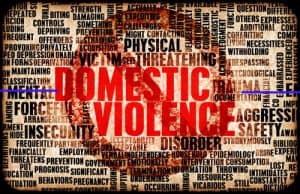Two Attorneys at the Strom Law Firm Fight for Egalitarian Application of South Carolina’s Domestic Violence Law

However, two attorneys from the Strom Law Firm – Bakari Sellers and Alexandra Benevento – have filed a case against the state because the new law does not protect victims in same sex partnerships. Although domestic violence can occur in any partnership many organizations that gather data on such violence now refer to it as intimate partner violence – Sellers and Benevento show that the law failed a lesbian couple in South Carolina who were in the throes of domestic abuse.
Statistically in South Carolina, one woman dies every 12 days at the hands of her male partner or former partner. However, the state also has a high rate of women who abuse men, and gay or lesbian partners who abuse their same sex partner. While male-perpetrated violence against women is overwhelmingly more common, that does not mean it is the only type of domestic abuse.
The crux of the law involves marriage. Although the Supreme Court has stated that all states must allow same sex partners to get married if they choose, South Carolina’s domestic violence law protects victims who are “household members.” That covers spouses, former spouses, and people who have children together. However, that does not cover couples who simply cohabitate, including same sex partners.
“When the Legislature makes laws, which, either intentionally or unintentionally are discriminatory, we have an opportunity to right a wrong,” Sellers said. “The fact that we had a bill that was signed into law in 2015 but didn’t take into account homosexual relationships is a problem.”
“It’s not like we made a conscious policy decision to exclude anybody,” said Senator Larry Martin, R-Pickens. “We were just attempting to address the underlying domestic violence law in the same manner in which it had previously applied.”
That is part of the reason that many organizations, like the Centers for Disease Control and Prevention, now use the term “intimate partner violence.” The term can apply not only to couples who cohabit, but to partners of any type, including teenagers who are dating but still live in their parents’ homes. That age group has one of the highest rates of intimate partner violence and it has only been recognized recently, as groups gathered data on abuse not involving married or cohabiting couples.
However, South Carolina’s law is specifically geared toward married or divorced couples, or couples who have children. That excludes a large segment of the population, including unwed cohabiting couples without children, regardless of gender or sexual orientation.
“The reason the domestic violence law expands its reach beyond married couples is to accept the reality that a lot of folks live together,” a different attorney stated in an interview. “This statute … does not acknowledge that same-sex couples can be in a marriage-like relationship.”

